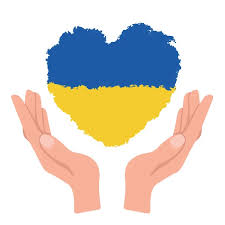Lawyer
Legal mechanisms to protect the rights to family life for persons returning to the de-occupied territories
In the conditions of armed conflict and occupation, the right to family life is severely tested. Restoring these rights for persons returning to de-occupied territories requires a comprehensive approach that includes legal advice, document analysis, legal opinions and legal protection. In this article, we will consider the main legal mechanisms that will help restore the rights to family life.
Consultation of a lawyer: the first step to restoring rights
The first and most important step for persons returning to the de-occupied territories is to consult a lawyer. The lawyer will provide detailed information about the legal mechanisms for protecting the rights to family life, which are available within the framework of national legislation and international norms. Consulting a lawyer will help you understand what documents are needed to prove marital status and what steps should be taken to restore these rights.
Analysis of documents: a key stage in case preparation
Analysis of documents is an integral stage in the process of protecting the rights to family life. Such documents include marriage certificates, birth certificates, court decisions on guardianship and other documents confirming family relationships. The analysis of documents allows the lawyer to assess the legality of the client's claims and prepare the evidence base for further legal actions.
Legal opinion: basis for further actions
After analyzing the documents, the lawyer prepares a legal opinion. This document describes the legal situation in detail, identifies violations of the rights to family life, and provides recommendations for their restoration. The legal opinion contains references to relevant norms of national and international law regulating family relations. This document is the basis for submitting complaints to authorities, lawsuits and other legal actions.
Legal opinion of a lawyer: defense in court and other instances
If the case goes to court, the lawyer's legal opinion becomes a key tool. The lawyer not only prepares this document, but also represents the client's interests in court, provides evidence and arguments in his favor. The lawyer's legal opinion includes a detailed analysis of the legal norms that were violated and a defense strategy. The lawyer can also apply to international judicial authorities, such as the European Court of Human Rights, for additional protection of the client's rights.
Practical aspects of protecting the rights to family life
Protection of the rights to family life also includes a number of practical measures. It can be cooperation with state bodies, public organizations and international institutions dealing with human rights. It is also important to provide psychological support for family members who survived the conflict and to facilitate the reunification of families that were separated by the occupation.
Conclusions
Protecting the rights to family life for persons returning to the de-occupied territories is a complex and multifaceted process. Consultation of a lawyer, analysis of documents, preparation of legal and legal opinions are key stages that ensure effective protection of the rights of victims. Cooperation with state and international organizations, psychological support and other practical measures are necessary components of a comprehensive approach to solving this problem. Only the joint efforts of various subjects can ensure the restoration of violated rights and contribute to the integration of affected persons into society.

































